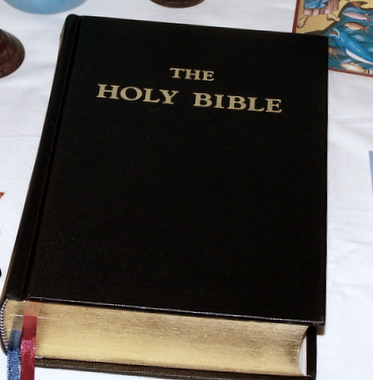Will doomsday come in 2012? OFC’s top ten historic failed apocalpypses

Matthew Pizzuti Out Front Colorado's former managing editor.
 Some say 2012 will be humanity’s last year. On December 21, the Mayan calendar complets the thirteenth b’ak’tun of the current age. Last time that happened was 5,125 years ago – or 3114 BCE – when the Mayan creation story says the old universe was annihilated and the current one began. So will it happen again?
Some say 2012 will be humanity’s last year. On December 21, the Mayan calendar complets the thirteenth b’ak’tun of the current age. Last time that happened was 5,125 years ago – or 3114 BCE – when the Mayan creation story says the old universe was annihilated and the current one began. So will it happen again?
While 3114 BCE was likely a fairly uneventful year, another 2012 prediction notes the Earth and Sun will line up with the galaxy’s center on the solstice, an annual alignment that reached a peak 1998. Another predicts a planetary alignment, which also happens every few decades but actually won’t happen in 2012.
Curious alignments happen in every human lifetime, but doomsday predictions are even more common. Here are our favorites:
May 21, 2011: Christian radio host Harold Camping predicted the rapture would move across the world by time zone, whisking three percent of humanity to heaven while earthquakes decimate the doomed left-behind. At the predicted 6 p.m. local time, millions of skeptics checked Wikipedia to see if the rumble of the downstairs washing machine was actually the earthquake; it wasn’t. Camping’s radio station replaced his program.
January 1, 2000: Programmers realized computer clocks weren’t designed to turn a century – they could lapse to 1900 or go altogether bonkers, meaning anything from bank accounts to power grids might crash. Everybody stocked up on canned food, but Microsoft released a patch and civilization hummed along.
 Year 2000-ish: Many creationists date creation at 5,000 years before Christ, so the year 2000 made it 7,000. “One day is with the Lord as a thousand years,” the Bible says, so 7,000 years – one divine week – is a nice place to end history (although some think creation should last 6,000 years so God gets Sunday off).
Year 2000-ish: Many creationists date creation at 5,000 years before Christ, so the year 2000 made it 7,000. “One day is with the Lord as a thousand years,” the Bible says, so 7,000 years – one divine week – is a nice place to end history (although some think creation should last 6,000 years so God gets Sunday off).
Perhaps God does enjoy the decimal system and wrapping up big projects in a week, but the Earth’s age is 4.6 billion to scientists and 5,772 in the Jewish calendar.
March 26, 1997: A group of San Diego UFO-enthusiasts thought the Earth was about to be “recycled,” killing everyone. Members committed ritualistic suicide so their souls could escape on a ship in comet Hale-Bopp’s tail. Their apocalypse flopped, but some say you can still spot their ghostly spirits in Star Trek Voyager reruns.
1982: The Bible says no man knows “the day or hour” of the Second Coming, but televangelist Pat Robertson announced he at least knew the year. It turns out he didn’t, but Democrats dominated the midterm elections and San Francisco won the Super Bowl – close to Armageddon for the Right. Robertson is a leading Evangelical figure today.
1914: Jehova’s Witnesses had long predicted a climactic battle between God and evil. World War I did break out in Europe that year, which wasn’t exactly what the group expected so they re-set the countdown for 1925. Later it was set for 1975, and now, more safely, a date nobody knows: 6,000 years after Eve’s creation.
1835-1891: Joseph Smith, Mormonism’s founder, said in 1835 Jesus would return within 56 years. Mormons note Smith didn’t begin that prophesy with his typical intro to divine correspondence, “Thus Sayeth the Lord,” so was just riffing.
March 21, 1844: A series of 1830s predictions dated Christ’s return sometime between March 21, 1843 and the same date in 1844, or maybe October 1844. They were part of a nationwide movement toward Christianity, so when everybody renamed the failed predictions “The Great Disappointment,” followers had plenty of other churches to convert to.
January 1, 1000: Most end-time predictions are American – probably because Europe’s big one was so huge everybody learned their lesson. Europeans in the year 999 – entranced by big, round and simple numbers – spent December abandoning possessions, murdering pagans and burying a time capsule detailing Herman Cain’s tax plan. The rest is history.
First Century AD: The granddaddy of end-times predictions was by the first Christians, who interpreted the Gospel quote, “this generation will certainly not pass away until all these things have happened,” to mean they’d live to see it. When it didn’t happen, some got so mad they vowed to pick on gays and Jews for the rest of history.
What's Your Reaction?
Matthew Pizzuti Out Front Colorado's former managing editor.










